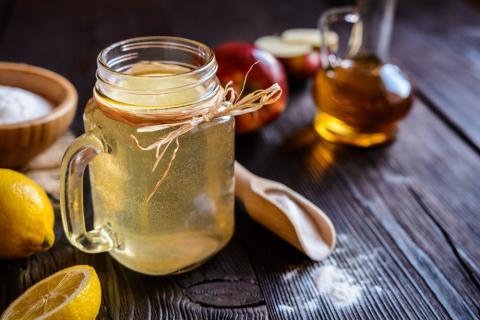
Do you struggle with occasional heartburn?
If so, you are not alone. Many Americans suffer from heartburn or acid reflux symptoms. The conventional treatment is to prescribe an antacid – which at first glance sounds logical, doesn’t it? (I mean if you are feeling too much acid, then you need something to decrease it, right?)
What’s really going on:
Well, it turns out it’s not that simple, and it requires us to look a little deeper than this surface-level experience. This ‘symptom’ we feel is just the tip of the iceberg. Treating the symptom does nothing to fix the problem, and in most cases, further aggravates the underlying cause. In the case of heartburn, GERD, or acid reflux, it turns out that in most cases low stomach acid (hydrochloric acid or HCL) is actually the root cause – which flows from malfunctions upstream in other systems in the body. For instance, if there is too little stomach acid, the food will linger in the stomach undigested longer than normal, potentially irritating the stomach and causing those unpleasant feelings. We know the stomach is designed to contain high levels of acid without any reflux. So, what’s going on then? Well, a key factor is the lower esophageal sphincter, which is the valve that separates the stomach from the esophagus. If its functioning becomes impaired, stomach acid can rise into the esophagus, causing a burning feeling and potentially damaging the lining of the esophagus. Stomach acid is also turned on in accordance with bile production from the liver and gall bladder. So, a poor functioning or congested liver can lead to sluggish bile production and consequent down-regulation of stomach acid or lack of ability to buffer stomach acids and digest fats -- all of which set you up for further digestive issues.
Why stomach acid is important:
When it comes down to it, we need stomach acid. It is a key component of our digestive process. We need it to neutralize and kill any harmful bacteria we might have ingested with our food, protecting us from infections. It also helps us break down our food from large protein molecules into smaller amino acids, so that we can properly absorb the nutrients like B12 and the precursors to neurotransmitters. Without enough stomach acid, undigested protein molecules can also enter the intestines, predisposing the intestinal lining to damage causing hyperpermeability (leaky gut). Those larger protein molecules can then enter the blood stream, provoking immune responses throughout the body, leading to food sensitivities and autoimmune disease processes. Because of this, you can see how taking antacids for too long could cause further problems down the line – like nutrient deficiencies, neurotransmitter imbalances (mood problems), and microbiome imbalances (pathogen and bacterial infections).
How does this start?
- Eating too many processed foods or foods that are difficult to digest can deplete stomach acid.
- Overeating at night can bog down the digestive fire (agni) at a time when it isn’t naturally at its full strength.
- Eating an excess of heavy and rich foods can also bog down the digestive fire if liver/gallbladder function isn’t up to par.
- Drinking large amounts of cold beverages with the meal
- Eating while stressed (stressful conversation, while on the computer, or driving, for example)
- Eating too fast, not chewing your food enough
What to do about it:
- Slow down. Eat mindfully and chew your food well!
- Stay hydrated throughout the day, but don’t drink much water (especially cold) while eating, as this can put out your digestive fire. Best strategy is to drink a glass of room temperature water 30 minutes before your meal, so that your gut lining is hydrated but will not interfere with the digestive process.
- If you typically have low stomach acid and need to increase your digestive fire, try adding a squeeze of lemon or tablespoon of apple cider vinegar to the water. Digestive bitters or digestive stimulating herbs like ginger and black pepper can also help to ignite your fire in preparation for your meal.
- If you are experiencing too much acid, stay away from foods that aggravate it (spicy foods, citrus, coffee, or foods that you are sensitive to) and try a tea of cumin, coriander, and fennel or other cooling herbs before meals.
There are many options, but everyone is different. You can experiment to find out what works best for you or work with a holistic health practitioner to get some direction on what might best help you in your particular situation and get to the underlying cause!








